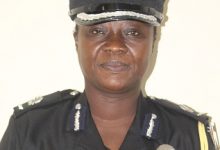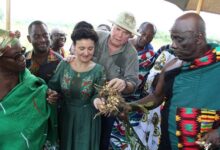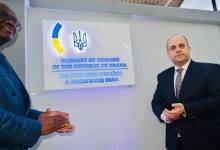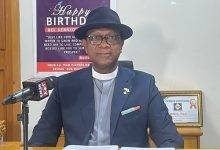
GFormer Executive Director of the Media Foundation for West Africa (MFWA) Professor Kwame Karikari has made a case for consistent funding mechanism for the state broadcaster, Ghana Broadcasting Corporation to ensure its viability in the media landscape.
Speaking at the 84th anniversary lecture of the corporation in Accra yesterday, the communication specialist who is also a former Director General of the GBC recounted the numerous difficulties facing the media entity, affecting its programming and productivity, as a result of inadequate financing.
In his view, government and the National Media Commission (NMC) were to be blamed for stifling efforts by past and present management to improve the corporation’s finances through interventions such as the TV license, establishment of courts, partnerships with private business entities among others, in its search for funding.
“For instance, government no more makes grants for equipment and capital goods and yet, expects GBC to find the resources by its own efforts per its statutory mandate. Yet both government and the regulator, National Media Commission, make it difficult for the corporation to raise money according to its statutory mandate.”
The development, according to Prof. Karikari, “raises a number of questions regarding the management of GBC in its search for funding and the NMC’s mandate regarding the operational management of the state broadcaster.
“To what extent may GBC, or can it, enter into any partnership with private entities in broadcasting? What are the parameters of the NMC’s oversight functions of the state broadcaster? What role is there for the NMC in GBC’s management, such as in fundraising?” he contended.
Prof. Karikari who is the Dean of the School of Communication Studies at the Wisconsin University College, challenged government to either repeal the GBC’s enabling statute, NLCD 226, which prescribes a funding model for the corporation “if it does not want citizens to pay, or find a more acceptable means of collecting the fee.”
“The NMC must take initiatives to develop a comprehensive plan for funding GBC, including how to utilise its properties such as land. This is urgently required so that GBC can resource its regional stations and set up new ones in the newly created regions,” he urged.
Prof. Karikari also, among others, called for the establishment of a special committee to “examine what to do with GBC, define its role in today’s Ghana and make recommendations for transforming it into a proper public service” as the board take steps to study and review the management system and processes to enhance the operational autonomy of the programmes and news divisions.
“Management, assisted by NMC and the board, must find lasting solution to the permanent state of animosity between union and management. To promote transparency, management should institute processes of regular communication and consultation with union and staff groups,” he entreated.
Minister of Information, Mr Kojo Oppong Nkrumah in a remark believed GBC was battling with an identity crisis and pledged his ministry and NMC’s support to work together to reposition GBC.
He expressed government’s solidarity with the broadcaster as it remained committed to providing the needed resources to “help public service broadcasting.”
On his part, Mr Yaw Boadu-Ayeboafoh, chairman of the NMC drew the attention of the corporation to the quality of programmes, phone-in sessions, among others, calling for a review.
BY ABIGAIL ANNOH







